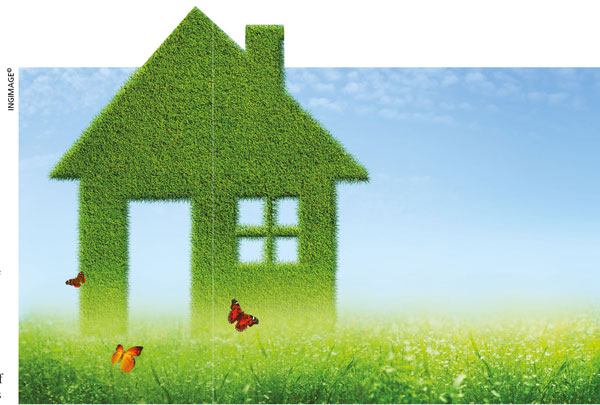AGRICULTURE SECTOR
SUSTAINABLE TRANSFORMATION
Akila Wijerathna highlights a prerequisite for innovative farming systems
The global agriculture and food system is unsustainable in its current form. Farming practices cause environmental damage through water pollution, soil degradation and greenhouse gas emissions while producing food of questionable quality.

In addition, many producers continue to live at or below the poverty line and workers are often subject to unacceptable working conditions. It follows that sustainable production is necessary to ensure food security, a healthy natural resource base and human wellbeing.
That said, a growing number of innovative farmers and scientists are moving to a more environmentally, economically and socially sustainable farming system. It has room for farms of all sizes, producing a diverse range of foods, fibres and fuels adapted to local conditions, as well as regional markets.
Moreover, this system embraces state-of-the-art science based practices that maximise productivity and profits while minimising environmental damage.
Some proponents of industrial agriculture claim that its impacts are the price we have to pay to feed the world. But a growing body of scientific evidence has debunked this, indicating that a more sustainable model can be as profitable and meet our needs in the long run.
In agriculture, sustainability is a complex idea with many facets – they include managing a profitable business that contributes to a robust economy, and mutually beneficial relationships with the surrounding community as well as the environment.
Addressing sustainability in agro-commodity sectors is challenging. In smallholder dominated sectors, challenges relate to productivity, complying with sustainability systems and proof of compliance. In the majority of such sectors, current transformation models – whether they’re public or market driven – have achieved limited success.
Agricultural environmental sustainability should develop meaningful stewardship of the natural systems and resources on which farms rely. Among other aspects, this involves building and maintaining healthy soil, water management, minimising pollution and promoting agro-biodiversity.
Meeting the needs of the present without compromising the ability of future generations to meet their needs is the key to sustainability. If natural resources such as soil, nutrients and water are consumed quicker than they’re replenished, the farming system will be rendered unsustainable.
Sustainability also depends on maintaining a high level of biodiversity especially in the soil and surrounding environment. Some major threats are loss of biodiversity, dry land salinity, acidic soil, and pests and weeds. Farmers, scientists and agricultural authorities are working together to tackle these issues.
An agro-ecosystems and food systems perspective is essential to understanding sustainability. Agro-ecosystems are envisioned in the broadest sense from individual fields and farms to eco-zones. Food systems – which include agro-ecosystems, distribution and food consumption components – similarly span from farmers and local communities to the global population.
Emphasising this perspective enables a comprehensive view of production and distribution enterprises, and how they affect human communities as well as the natural environment. It also provides tools to assess the impact of human society and its institutions, on farming and environmental sustainability.
Agro-ecosystems will not be sustainable in the long run without the knowledge, technical competence and skilled labour needed to manage them effectively. Farmer focussed agricultural organisations should work with national research centres to develop systems that are both sustainable and profitable.
Given the constantly changing and locality specific nature of agriculture, sustainability requires a diverse and adaptive knowledge base, utilising formal experimental science and farmers’ local knowledge. Social institutions that promote education of farmers and scientists, and farmer-researcher partnerships, and encourage innovation can improve productivity as well as long-term sustainability.
Consumers can play a critical role in creating a sustainable food system. Through their purchases, they send strong messages to producers, retailers and others about what they consider important.
Meanwhile, cost and nutritional quality have always influenced choices. The challenge is broadening consumer perspectives so that environmental quality, resource use and social equity issues are also considered.
New policies and institutions must also be established to enable producers using sustainable practices to market goods to a wider audience.
Coalitions to improve food systems could initiate a dialogue among consumers, retailers, producers and others. Along with other public forums, they can be important vehicles to clarify issues, suggest new policies, increase mutual trust, and foster a long-term view of food production, distribution and consumption.





Sustainable agriculture calls for combating the threat of climate change as well. Weather patterns are changing, extreme weather conditions prevail with cold regions becoming colder and warm regions warmer, and there is a wider variety in spatial rain distribution. For these reasons, farmers need to be extra vigilant. Farmers should also be supported and encouraged to embrace smart agriculture initiatives in Sri Lanka such as early warning systems, enabling selection of crops in advance, access to information portals and forums where respective stakeholders can come together etc. The latter can probably be strengthened by partnerships.